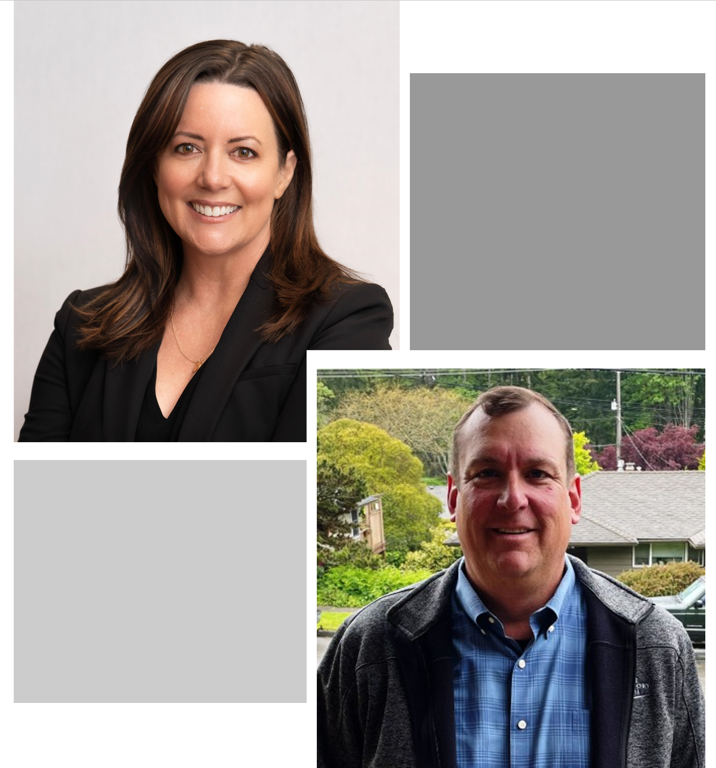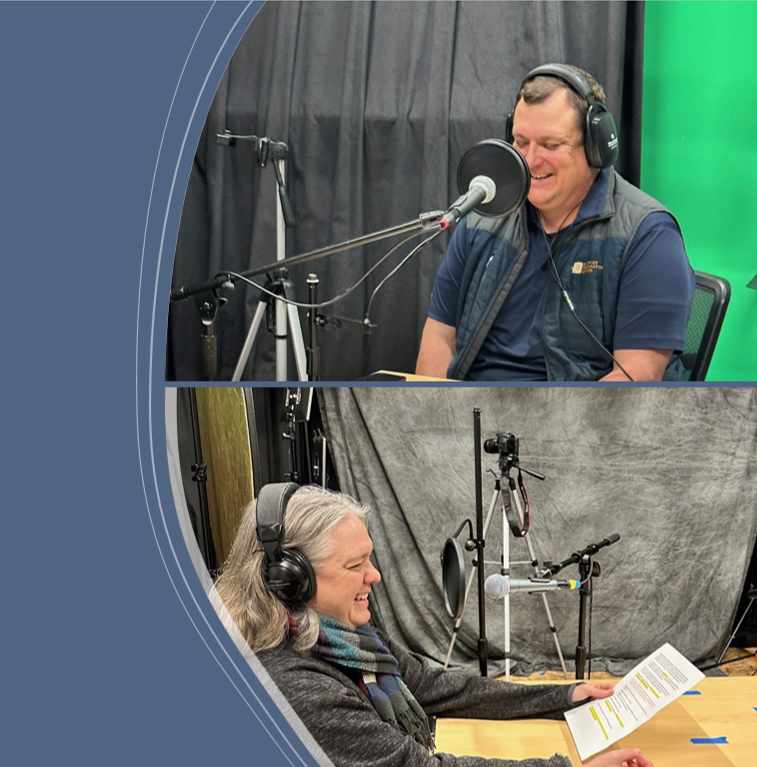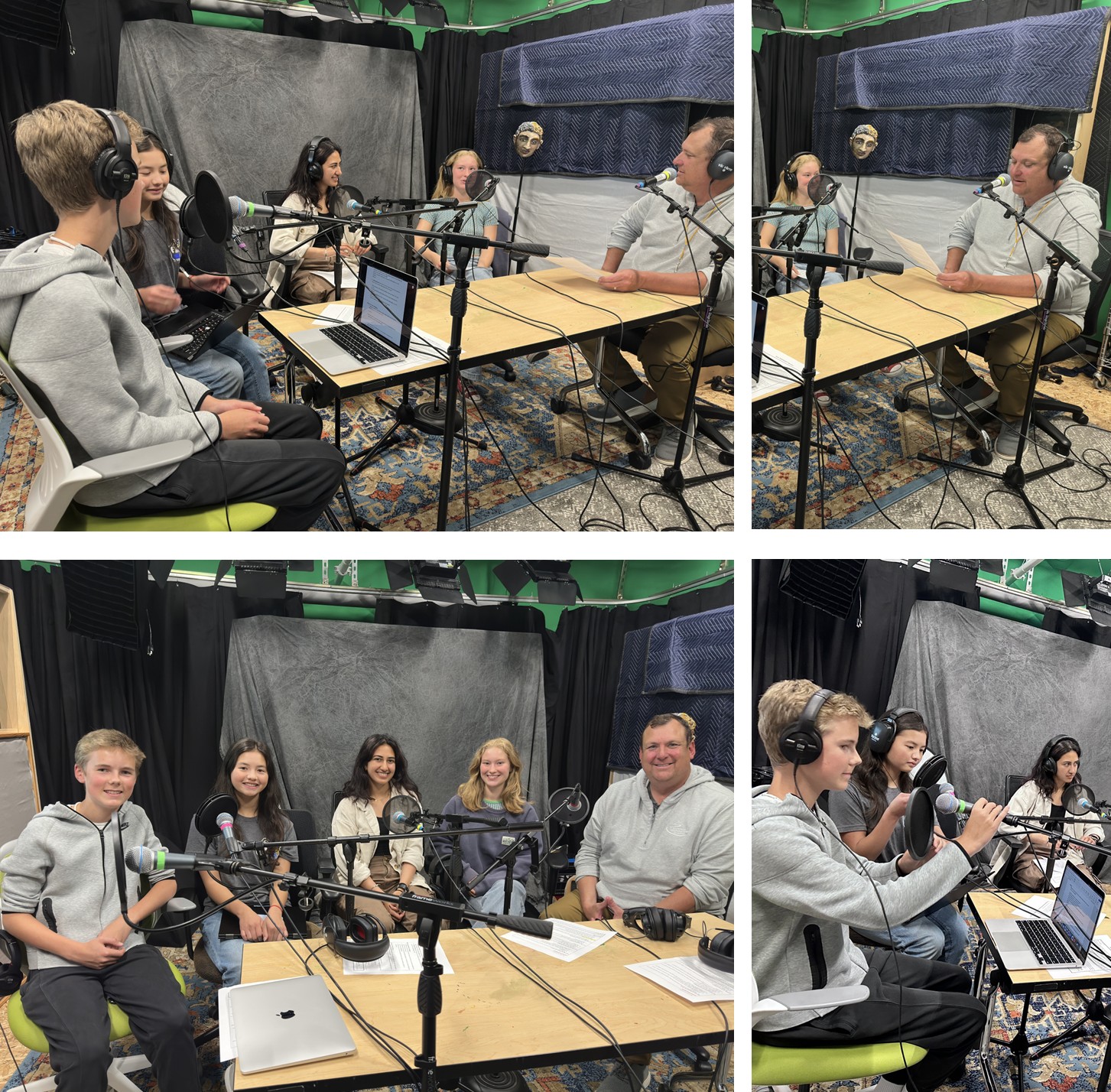Episode Transcript
[00:00:00] Speaker A: Welcome to Insightful Questions, a podcast designed to introduce us to our new Head of School, Sam Yuswak. Join us as we uncover his vision and connect with voices across EPS in engaging monthly conversations.
Get ready to explore the essence of leadership and community in this exciting journey.
This is insightful questions.
Hi, I'm Bart Gummry, associate head of school here at Eastside Prep. And with me.
[00:00:38] Speaker B: Hey. This is Sam Esweck, head of school. How are you, Bart?
[00:00:41] Speaker A: Just fine, Sam. Odd looking at you in headphones with me in headphones, but I guess that is all part of this high tech.
[00:00:50] Speaker B: World we're part of is the magic of the podcast.
[00:00:55] Speaker A: Normally I put on headphones so I can't hear you.
Sam. We are here today to talk specifically about college counseling and the direction of our students after their time here at Eastside Prep.
I wanted to start by asking you, or reminding a little bit of our listeners your background. You started teaching at a place where college was not even a dream for most of the people there.
Talk about that.
[00:01:34] Speaker B: Yeah, I mean, at my first school up in Alaska, it was maybe a student or two out of the graduating class who would go on to university.
So what that meant was students motivations for being in school and specifically remaining in school were necessarily different.
And contrast that with then moving here, moving back here, and moving into the independent school world where it's essentially an expectation, like just not even a conversation about where you're going to go after twelveTH grade.
[00:02:19] Speaker A: Yeah, certainly not a question if you're going to go, which I think is a real strength and a curse. At the same time, sometimes for our students, specifically, our school has preparatory put right into its title. What does preparatory mean to you when you think about students and college?
[00:02:47] Speaker B: Well, preparatory comes with it a whole host of expectations and it's a word that's in different school titles across the country. I think what we've settled in, in terms of the EPS version of preparatory is that we're not just preparing kids for college admission and frankly, we're not just preparing kids for college. We talk about EPS being life preparatory. And certainly if you think about our mission to prepare students, the name makes perfect sense. But what is it that we're preparing them for? What are we holding up as the things we're pointing kids to? Are we preparing them for standardized tests? Are we preparing them for or are we preparing them for a future they can't yet imagine is going to be and all the ambiguity that comes with that. So taking a moment to define preparatory is really essential in terms of understanding a school's culture.
[00:03:52] Speaker A: You and I have spoken at length about the fact that sometimes people think preparatory really is geared towards admissions and is somehow different from what we would do every day here as part of our mission. And in fact, when 9th graders ask me what they should be doing for college, I say, exactly what you're doing right now. Do well in your classes. Develop your own ideas, your interests, think about who you are. Get ready for that. And that, of course, extends, as you said, well past college.
[00:04:28] Speaker B: Well, I think that's the trap of having the term preparatory in a school's name is that it instantly positions one to be thinking about what's next instead of thinking about the now. I mean, if all we do is go through life thinking that what we're doing now is in service of the next, you're not enjoying the now. And that goes for thinking about how elementary schools prepare kids for middle school and middle school prepare kids for our upper school and so forth.
Again, that's why that word can cause some challenge sometimes, for sure.
[00:05:08] Speaker A: A lot of people don't know that. You spent some time as a college counselor here, and I'd be interested in you sharing a little bit of your insights and takeaway from that period.
[00:05:22] Speaker B: I'd be happy to. I mean, I have to tell you that, and it pains me to do so, but that was really one of the most moving experiences for me. It was certainly one of the areas where I learned the most in that I went into college counseling really not understanding all that goes into it and all the care that our college counselors and everyone puts into the process.
This is born of my own experience at a large public school where there was a guidance counselor and they had a load of 400 folks, and every so often I'd get this brochure of a school I'd never heard of and was sort of like, Why?
So? I was really excited to become part of that team.
And my favorite part of it was, and this might sound strange, but it wasn't in the title college Counselor. It wasn't the college part, it was the counselor part. This was the first role I'd ever been in where I wasn't the authority. Right? So if you think about teaching a class, coaching a team, leading an outdoor trip, being a middle school head, you have authority over students and all of those in that relationship. And as a process coach, and I'm going to ask you to talk about our structure in a second because it's really unique. As a process coach in the college counseling team, I was there to offer advice and support.
[00:06:57] Speaker A: Yeah, that's right. And it's humbling, I think, at times, because you want to help so badly, but you're not always able to exact change in the moment or insight or revelation. In fact, I think a lot of students come to appreciate the process more in the rear view mirror than they do in the moment.
You wanted me to talk about the structure of our program, and I'm glad to do it.
There is nothing that has changed more in my time, which I'm frightened to say, dates back to 1983 when I started in a college admissions office. There's nothing that's changed more than the timeline of this process.
It used to be that early applications were kind of a unique little thing and a few people took advantage of them. Every once in a while you'd have a student who was so committed to one institution that they knew they wanted to use an early decision application, but it really was based out of interest in that school and not a need to exact a strategic advantage on it, which increasingly happens.
We started to feel that press as more and more people were applying early, and it became a tight compression of time between the time that the school year started and people were filing applications.
Flash ahead to last year. We had only two students in our entire senior class who didn't have a November 15 or earlier deadline. That used to be crazy to even think about, and now it's the norm. So it makes me so glad that we adjusted the program in the way that we did and create process coaches and writing coaches to divide up that.
[00:09:05] Speaker B: Structure, what's that division look like?
[00:09:08] Speaker A: So that really looks like, well, first of all, I should back up.
We also are unique in that all of our college counselors are teachers as well.
It's been my observation that in many schools, the college counselors become their own sort of specialized and sometimes hidden office doing this mysterious, important stuff and less aware of what's going on as the day to day school life. So all of our college counselors teach, and that makes them much more aware of what the load is on faculty here. At any rate, we just broke it up into what it sounds like process coach. You go through the nuts and bolts of the start to finish timeline and tasks that have to go into applying, save the writing piece. And our writing coaches are there to do all of the essay, workshopping, and idea formation with students, as well as write what I think is a really critical piece here the school letter of recommendation.
[00:10:21] Speaker B: And I think another important distinction is that you have middle school and upper school faculty who serve as college counselors. Is that right?
[00:10:32] Speaker A: We do. We used to have for a long while Anthony Colello, who is our fifth grade teacher and our twelveTH grade college counselor. I always like that. I told Anthony he was in shipping and receiving here, so that was fun. But yeah, I think it's really important that people have a full view of the experience here, not just sweeping in with kids in their lives in 11th and twelveTH grade. And we've talked a lot during our time as middle school head and upper school head about our valuing this place being one school grades five through twelve, not two. Entities.
[00:11:12] Speaker B: Well, it was certainly always amazing in the few years I did it, where I could remember being involved with a kiddo when they were in middle school, as the middle school head. And then they show up a few years later and they've gone through our program and they've been growing and learning and to then work with them and have that preexisting relationship but also see all the great growth was always so rewarding.
I think it's one thing to say that we want to be sort of a life preparatory. It's one thing to say all those things but how they get played in the day to day is what really matters. I mean, when you're sitting with a kiddo and you're helping them develop their criteria and helping them to understand how they're going to flourish in their next place that they're going to be living in and valuing every place as one that can be great for our kids that's a really important part of all.
[00:12:07] Speaker A: Yeah, I love that you're talking about that. I think one of my favorite things is that in an initial college meeting with a student you often don't talk about college at all, right?
You help them explore who they are.
We all know that kids here roll their eyes a bit at self reflection. We make them do it a lot. But I think that it's one of the ways in which we're really preparatory for them in this process. They get to know themselves as individuals far beyond a few numbers like a GPA and a test score.
[00:12:43] Speaker B: Yeah, I'll admit that was a surprise, helping students unearth what they're looking for when they've maybe seen certain names of schools on sweatshirts or maybe they had a sibling and they kind of watched the process from afar. But there's a lot of demystification that.
[00:13:05] Speaker A: Goes on a ton and I also think a lot of recognition that your ideas coming in can and should change. I think sometimes kids would get concerned that their list was evolving, and in fact, I'd have to reassure them and often parents that that's the best sign we can get, that they're doing the right kind of thinking, that they're actually starting to form their own ideas as opposed to following somebody else's ordained list of what to do.
[00:13:41] Speaker B: Well, I certainly appreciate I mean, one of the things you taught me early on was that at this school there's not some secret list of schools we hope kids get into or suggest kids get into.
You and the team have this wide, unbelievable sort of database of places where our kids will be successful in their lives.
But man, I think that's a hard line to hold. Sometimes just because a place is popular doesn't mean it's right for the individual student. I mean, we could line up right all of the most selective places and the kid said my criteria is that they're the most selective is that going to translate into success while there.
[00:14:30] Speaker A: Correct. And I'm smiling to myself because I've always gone into this little riff about maybe you don't want to marry the most popular girl from your high school class, but I might be talking to the most popular girl from our high school class.
But I really think that they so vastly overestimate two things in this process admission and graduation, and they kind of forget about the four years in between. And I think we are constantly there trying to reassert the value of that four years, number one. And number two, to really assert that they are more powerful than the institution. I like to remind kids that they can probably go to any place and do really, really well just based on their abilities that they've honed here, not the least of which, I think is a really well refined ability to speak with adults well.
[00:15:34] Speaker B: And I think that circles right back to where we started, which is the definition of preparatory. I mean, the confidence and the curiosity to reach out to resources, to professors, to adults, to send an email that you wouldn't have sent otherwise in pursuit of something you're interested in or in pursuit of asking a question. And I think the whole setup of Eastside Prep is to create the conditions that students learn how to do that, but also become confident in doing that. So it translates to wherever they go next.
[00:16:10] Speaker A: Yeah, I couldn't agree more. And I think that one of the things that we work hard on in that group in the college counseling process is to make students confident enough that their views are the most important views that their ability to do this is really important.
One of the things I like to tell parents is that the ownership of the process is probably more important than the choice in the long run, that the agency and the act of making the choice is really key.
[00:16:42] Speaker B: That's wonderful. And that's just something that we'll keep working to make happen for the kiddos as things change. And watching this program grow with our senior classes grow has been exciting, but also that's part of the challenge, is making sure that every kid feels that support from that group of adults working on their behalf.
[00:17:07] Speaker A: Yeah, I've always felt that at the end of the process, there's a lot we can't control, but we can control how warmly we've held kids and supported them through the process. And I think in the long run, that matters more.
[00:17:23] Speaker B: Well, hey, I really appreciate you taking the time today. I mean, I have a lot of appreciations for you, Bart, going all the way back to starting this place as someone who had never middle school headed before, and then the opportunity to join that college counseling team and really see your care for the process on display.
[00:17:45] Speaker A: Thank you, Sam.
[00:17:47] Speaker B: All right.
[00:17:48] Speaker A: Thanks, Bart.
To gain more insights, check out the EPS weekly news each Friday.


